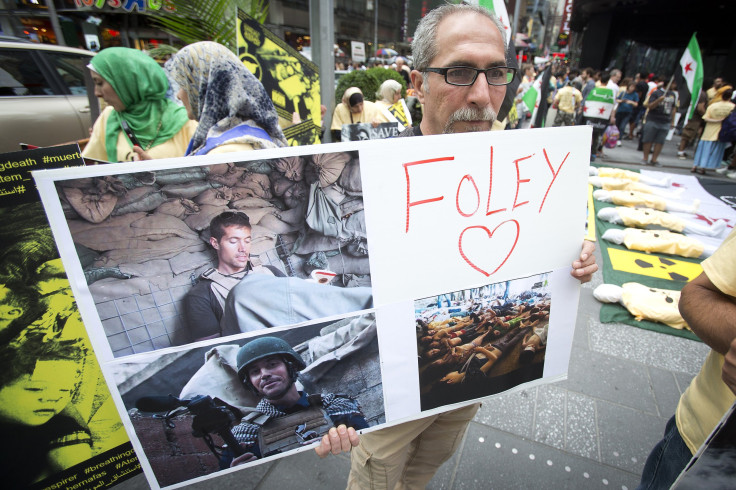James Foley's Killing Turns Spotlight On European Jihadists

The beheading of James Foley by a man whom UK intelligence agencies are close to identifying as a British national didn’t just reveal the brutality of how ISIS operates. It raised questions about why a large number of young Muslim men from across Europe have joined the ranks of the Sunni militant group.
Thousands of radicalized Muslims that have joined ISIS from all across Europe, from the United Kingdom to the cities and towns of Sweden, France and Belgium. Many get radicalized after finding themselves on the fringes of society, ostracized from the political process and, crucially, according to one expert, bored and unemployed. About one young European in five is unemployed according to official statistics, a percentage that rises significantly for ethnic minorities.
“Generally, unemployment does predict people turning to terrorism more than other indicators, not because the perpetrators are impoverished but because they have nothing to do, because they are looking for purpose in life,” said Max Abrahms, a terrorism expert at Northeastern University.
It's not a new phenomenon to see Europeans answer a call to arms from terrorists in far-flung areas of the world. The execution of Daniel Pearl, a 28-year-old Wall Street Journal journalist, was organized by Omar Sheikh, also from north London but of Pakistani descent. Similarly, Briton Richard Reid, the "shoe bomber," was caught trying to blow up a passenger jet after being recruited by Al Qaeda.
In the past, poverty was thought to be the driving force behind terrorism, but according to Abrahms, political science research actually points toward unemployment among middle- and upper-class youths, rather than poorer people, as the primary factor.
People who come from real poverty don’t tend to attach themselves to a terrorist cause, Abrahms said, because they tend to be dealing with more pressing issues in their lives. However, people from more privileged backgrounds, who still live at home, may find themselves in a life without purpose.
“If you pair that with being Muslim in more radicalized Western societies, which Europe is one, you end up with a person that sees ISIS as an appealing alternative to find focus in life,” said Abrahms. His findings are reinforced by a 1999 report commissioned by the Federal Research Division, titled The Sociology and Psychology of Terrorism: Who Becomes a Terrorist and Why?, which seeks to answer why terrorists all across the world turn to terrorism.
“Individuals who become terrorists often are unemployed, socially alienated individuals who have dropped out of society,” the author of the report, Rex A. Hudson wrote. “Those with little education, such as youths in Algerian ghettos or the Gaza Strip, may try to join a terrorist group out of boredom and a desire to have an action-packed adventure in pursuit of a cause they regard as just.”
When the video was released last Tuesday that apparently showed James Foley being beheaded, very little was known about the man now named as the prime suspect, Abdel-Majed Abdel Bary, except that he had a very distinguishable London accent.
For the United Kingdom, the revelation comes at a time when it and, indeed, the European Union are still in slow recovery from the crippling effects of the financial crisis, which, among other things, saw youth unemployment hit record levels in the last five years. The current youth unemployment levels in Europe for 2014 average 23.3 percent. This sides with official statistics coming out of the European Union. The United Kingdom, for example, had about 21 percent youth unemployment from 2009 to 2013, World Bank Statistics indicate. Similarly, other countries that have large Muslim population and relatively high youth unemployment have seen their citizens join ISIS in large numbers, including Sweden, Belgium and France.
The recent European elections saw record gains for parties on the right and far-right, including UKIP (United Kingdom Independence Party), which won the most votes in the UK off the back of right-wing populism and what is perceived to be racist, anti-Islamic policies. The apparent lack of Americans in ISIS, said Abrahms, has a lot to do with the relatively quick Americanization of young immigrants. “In the United States Muslims are relatively content, we don’t have a big radicalization problem in this country,” said Abrahms. “I think that levels of discrimination against them are relatively low, and Muslims here are more assimilated.”
© Copyright IBTimes 2024. All rights reserved.






















